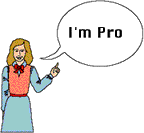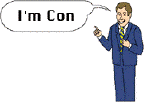Argumentation has been a popular approach to nonmonotonic logic since
the work of John Pollock, Ronald Loui and others in the eighties, who
showed that argumentation is a very natural way of conceptualising
nonmonotonic reasoning. In the early nineties Dung and others showed
that argumentation is also very suitable as a general framework for
relating nonmonotonic logics of different styles. Finally, in recent
years argument-based logics have been used to formalise informal
theories of argumentation.
Argumentation can be studied on its own, but it also has interesting
relations with other topics, such as dialogue and decision. For
instance, argumentation is an essential component of such phenomena as
fact finding investigations, negotiation, legal procedure and online
dispute mediation. However, only recently researchers have begun to
explore the use of argumentation in these contexts. This workshop aims
to bring these researchers together, to promote the logical study of
argumentation and its connections with decision and dialogue.
In particular, we invite submissions of original research on the
following topics.
- The use of nonmonotonic logics (whether argument-based or not)
in formal models of
various kinds of multiagent interaction, such as:
- fact finding investigations
- negotiation
- legal procedure
- dispute resolution and mediation
- decision making
- The study of argument-based nonmonotonic logics themselves, on such
topics as:
- semantics
- proof theory
- complexity and resource limitations
- applications to epistemic and practical (including legal and ethical)
reasoning.
- applications to informal theories of argumentation.
- comparison with other styles of nonmonotonic logic.



